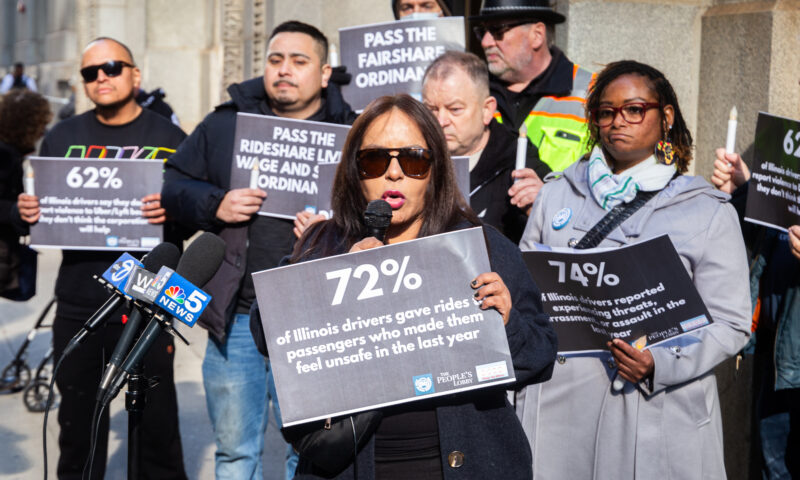
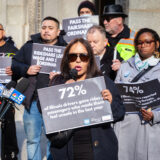
What do nurses, Waffle House servers and Uber drivers have in common? Violence on the job — and a movement to end it.
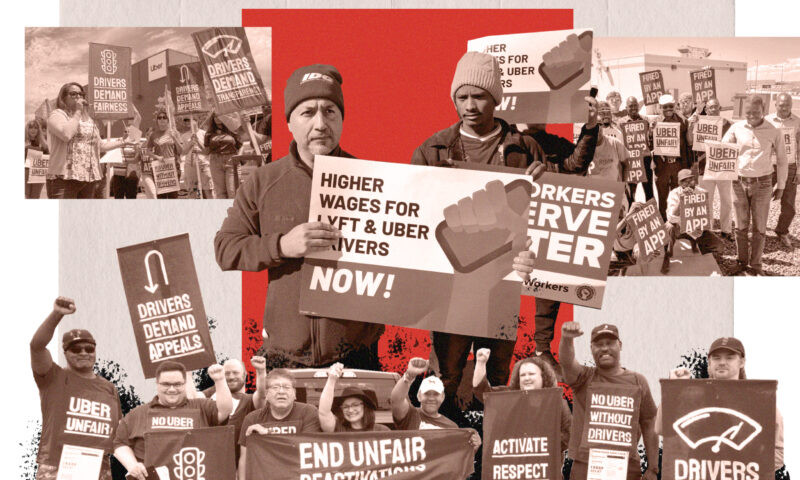

Workers optimistic about national coordination even as a second Trump administration threatens labor rights and immigration crackdowns.
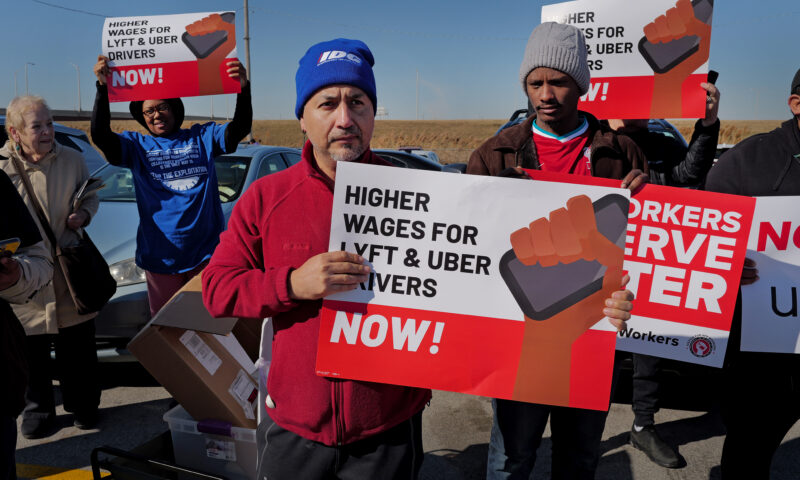
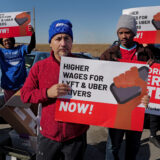
From Chicago to San Jose, California, rideshare drivers are working together for higher pay, safer work and better jobs.
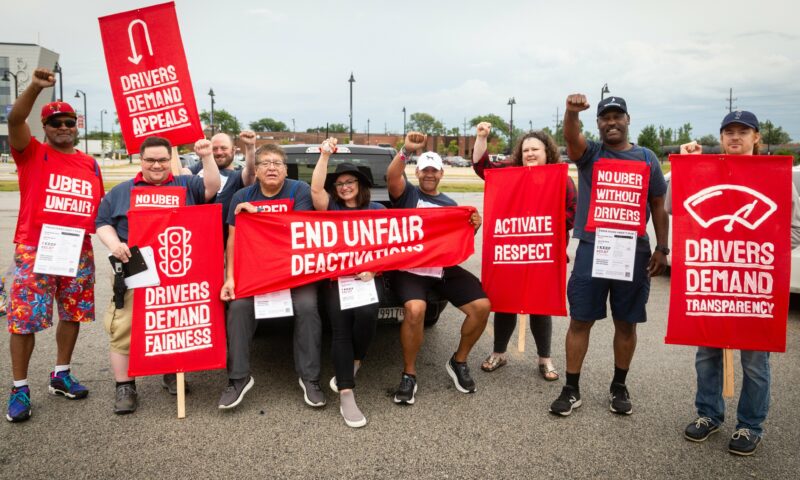

“Due process” for deactivations would include clear rules, guidelines and appeals before loss of income.


Family needs and the lack of a safety net add to a college graduate’s struggle to rise from California’s low-wage economy.
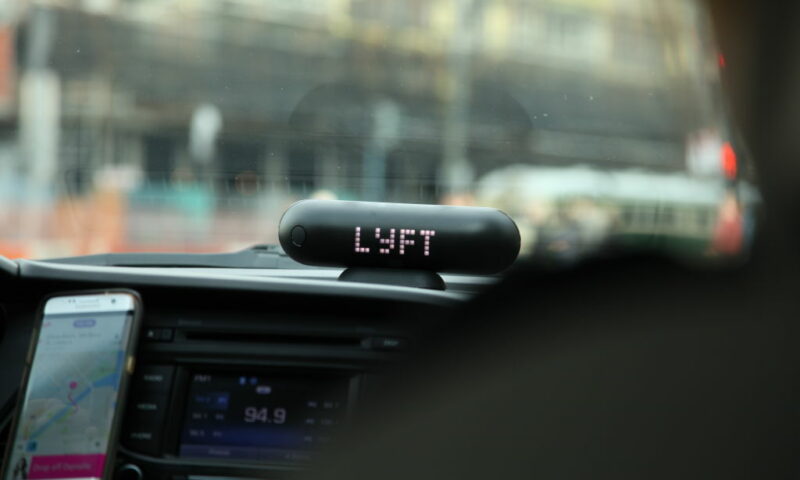
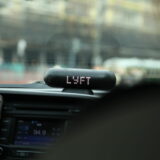
For the first time, they could qualify as employees and enjoy benefits and rights that have been off-limits for years.


The Department of Labor is scrambling to craft proposals that avoid the fate of Obama’s failed effort in 2016.
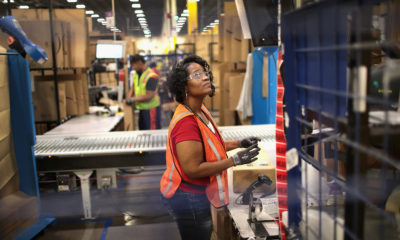

Shoring up working conditions at the bottom of the economy will be a priority for state political leaders. A new report could shape policy.
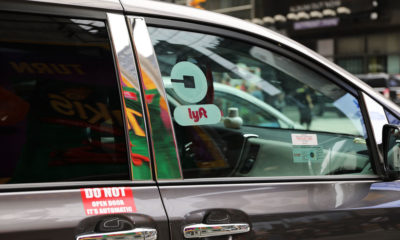

Rideshare companies spent $203M to pass a California measure limiting driver rights. A lawsuit says its fine print could block unions.


Vons and other supermarkets will soon start replacing their delivery drivers with gig service contractors.
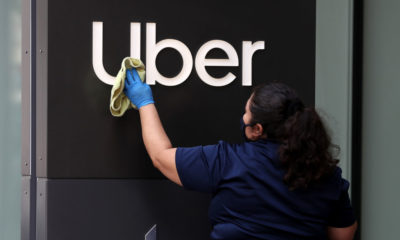
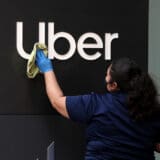
The most expensive ballot proposition in California history has won, although its opponents complained of being harassed online.
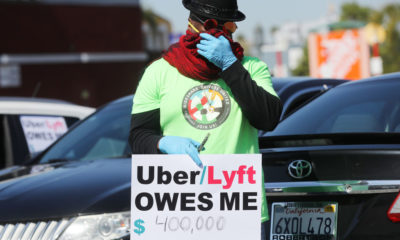
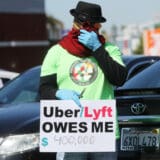
Gig companies are threatening to eliminate thousands of jobs if their ballot measure doesn’t pass.
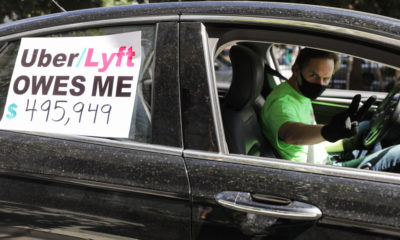
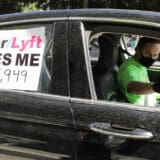
Lyft and Uber drivers’ early pandemic experiences have soured them on the companies’ ability to keep their workers safe.


An Economic Policy Institute study concluded that rideshare drivers nationwide take home an average of $9.21 an hour after expenses.


As the full scope of AB 5’s passage grows clearer, independent contractors in a few fields fear the new law could hurt them.


Co-published by the American Prospect
If AB 5 becomes law it could open the floodgates to similar legislation in other states. Uber and other companies may then find themselves on the defensive.


Although rideshare apps and other “gig economy” jobs are often billed as ways for workers to make extra cash in their spare time, that hasn’t been the case for many.
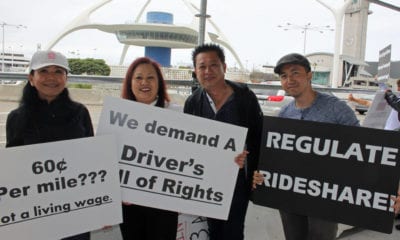

Co-published by the American Prospect
The strike by Uber and Lyft drivers came amidst highly anticipated initial public offerings from the two rideshare giants.


Advice for California’s new governor collected from interviews with three authorities on poverty and income inequality, and from stories in our Waiting for Gavin series.


Alissa Quart’s new book examines the plights of women and men whose jobs have been devalued by the evolving American economy.